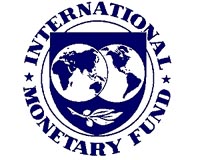| . |  |
. |
Tokyo (AFP) May 20, 2011 The Bank of Japan on Friday left its key rate unchanged, sticking to its view that the economy will pick up later this year despite being pushed into recession by the March 11 earthquake. The central bank maintained its easy monetary policy with rates at between zero and 0.1 percent and kept its 10 trillion yen asset buying fund to spur investor confidence and push down long-term interest rates. The board of the BoJ voted unanimously after a two-day meeting as it gauges the effects of previous easing measures. "Japan's economy faces strong downward pressure, mainly on the production side, due to the effects of the earthquake disaster," the central bank said in a statement. The world's third-largest economy plunged back into recession in January-March, contracting sharply on the impact of the nation's biggest recorded earthquake, a tsunami and a nuclear crisis. Gross domestic product fell 0.9 percent in the first quarter compared with the previous three months, and marked the second consecutive quarter of contraction, which economists define as a technical recession. The drop was equivalent to a 3.7 percent fall on an annualised basis. The government said Thursday it sees the downturn worsening in April-June, as nationwide supply chain problems following the quake continue to disrupt production and the threat of power supply disruption prevails, before later rebounding. In its assessment Friday, the BoJ said the economy "is expected to return to a moderate recovery path from the second half of fiscal 2011 as supply-side constraints ease and production regains traction." The BoJ has been buying financial assets such as government and corporate bonds, exchange traded funds and real estate investment trusts in a bid to ease worries over deteriorating investor sentiment and to lower long-term interest rates. In the aftermath of the earthquake, the BoJ injected a record amount of cash into the banking system and doubled the asset purchase fund to 10 trillion yen, a key policy tool it kept unchanged Friday. It has also set up a one trillion yen ($12 billion) lending scheme for banks in quake-hit areas to ensure financial institutions in disaster-hit areas can meet demand for post-quake reconstruction funds. Last month the central bank said deputy governor Kiyohiko Nishimura had proposed that it should increase the size of its asset-purchase programme to 15 trillion yen, an idea that was not floated this time around. The BoJ last month downgraded its forecast for real gross domestic product growth to 0.6 percent from an earlier 1.6 percent due to the March 11 earthquake and tsunami that plunged Japan into its worst post-war crisis.
Share This Article With Planet Earth
Related Links The Economy
 Asia urges non-European for IMF top post
Asia urges non-European for IMF top postHong Kong (AFP) May 19, 2011 Asian nations on Thursday urged the International Monetary Fund to break with tradition and appoint a new leader from an emerging economy, following the resignation of its scandal-hit chief. China, South Korea and Thailand led calls for the IMF to replace Dominique Strauss-Kahn, who resigned after he was charged with sex offences in New York, with a candidate from an emerging economy to refl ... read more |
|
| The content herein, unless otherwise known to be public domain, are Copyright 1995-2010 - SpaceDaily. AFP and UPI Wire Stories are copyright Agence France-Presse and United Press International. ESA Portal Reports are copyright European Space Agency. All NASA sourced material is public domain. Additional copyrights may apply in whole or part to other bona fide parties. Advertising does not imply endorsement,agreement or approval of any opinions, statements or information provided by SpaceDaily on any Web page published or hosted by SpaceDaily. Privacy Statement |